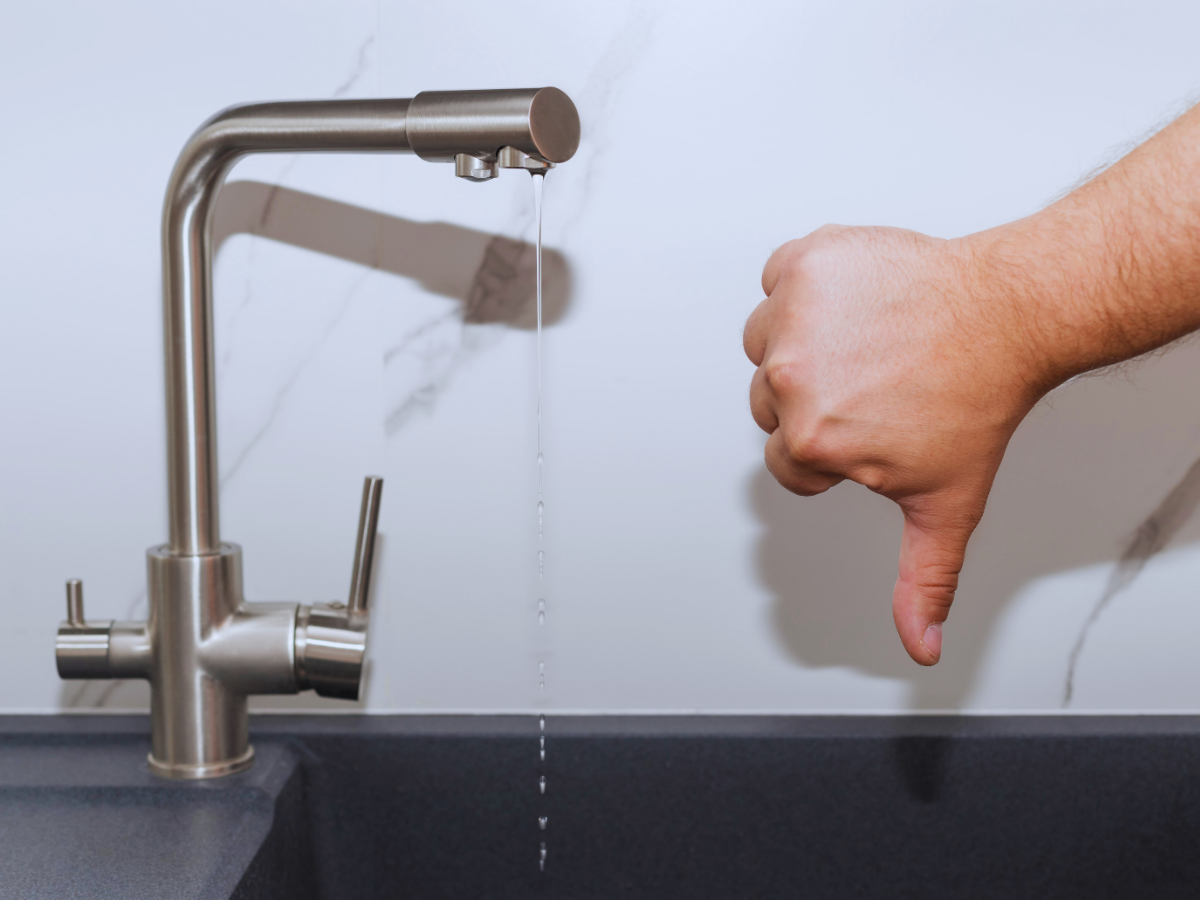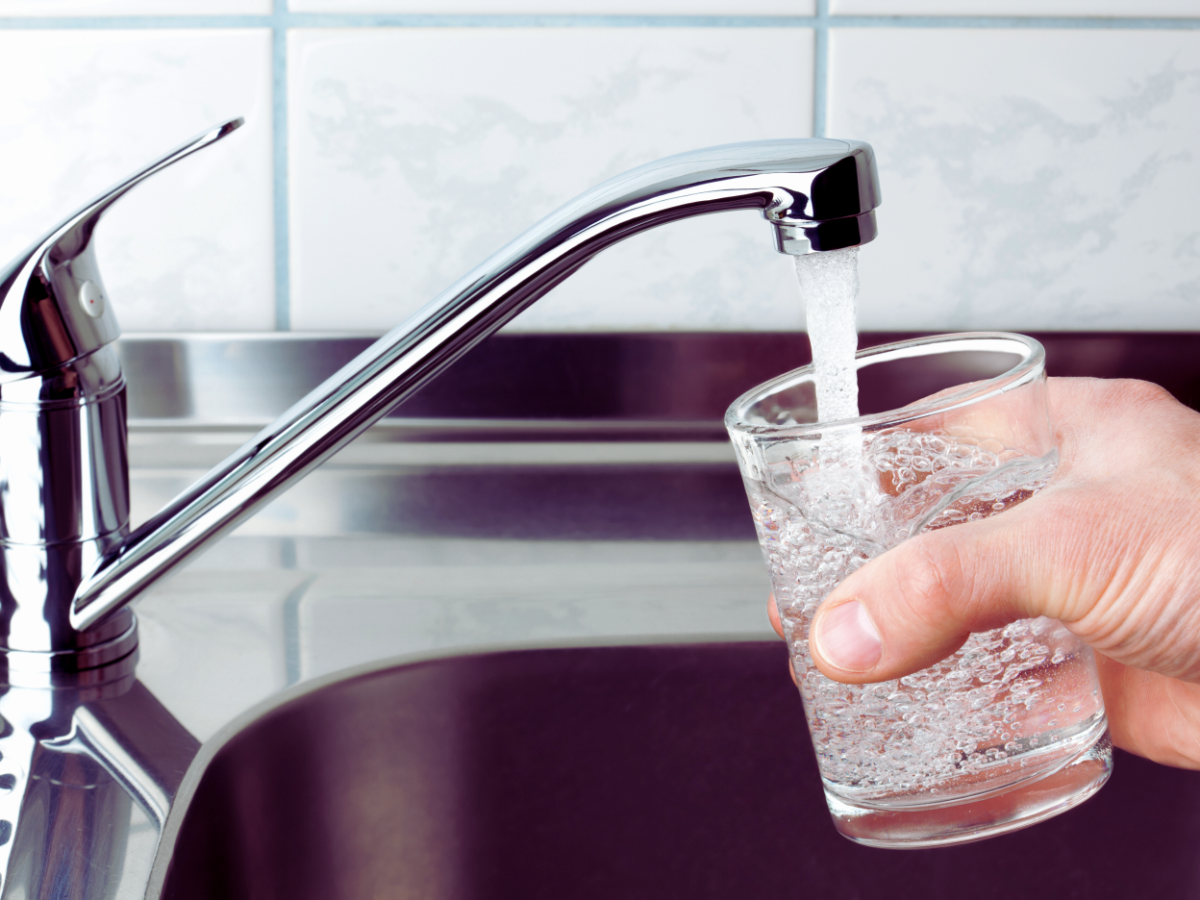 The water in Fort Myers doesn’t always taste great for a few reasons, but there’s a solution.
The water in Fort Myers doesn’t always taste great for a few reasons, but there’s a solution.
- High mineral content, including calcium and magnesium, can give it a metallic or earthy flavor.
- Chlorine makes your water safer to drink but can also taste like chemicals.
- Aging pipes and other old infrastructure along with algae and runoff can also make it taste bad.
- You can get safer, better tasting water with whole home water filtration systems, which also help keep your plumbing and appliances in better shape.
Whether you’ve just moved to Fort Myers, FL or you’re a longtime resident, one thing is almost certain: You’ve tasted unfiltered tap water, and you’re in no hurry to repeat that experience. While there is plenty to enjoy recreationally about the water in the area, drinking it is another matter entirely.
Fortunately, whole home water filtration offers a solution. This doesn’t just improve the taste and appearance of your water but also helps protect your plumbing, your appliances and the health of your household.
Common Complaints About Fort Myers Tap Water
There’s plenty to complain about! Your tap water in Fort Myers may taste like chlorine or other chemicals, or it may have a metallic or mineral flavor.
It might smell earthy or musty. And depending on where you are, it might also be discolored.
Why Does Fort Myers Tap Water Taste Strange?
A number of factors are responsible for the unappealing taste of Fort Myers tap water.
Hard Water and Mineral Content
The term “hard water” refers to water that has a high mineral content, which includes iron, calcium and magnesium. The hardness of water is measured on a scale of grains per gallon.
The City of Fort Myers reports a water hardness of 1.8 grains per gallon, which is considered slightly hard by the nonprofit industry group the Water Quality Association.
However, many households may actually experience higher levels of hardness in their water. Fort Myers gets a lot of its water from the Floridan Aquifer, which has some very hard water in parts.
Furthermore, if you have well water, your water may be harder than the municipal supply. In addition to affecting the smell and taste of your water, hard water makes lathering soap difficult and leaves buildup in your pipes and appliances.
Chlorination and Disinfection Byproducts
Chlorine and chemicals called chloramines, which combine chlorine and nitrogen, are commonly used as disinfectants in water systems because they are safe and effective. However, the drawback is that this treatment can make your water smell and taste like it’s being pumped in from a swimming pool.
Source Water Issues
In addition to the Floridan Aquifer, the Fort Myers area also draws some of its water from the Caloosahatchee River. There are several issues with the river water that affect its safety. The city’s water treatment program keeps amoebas and bacteria under control, but algae blooms are an ongoing issue.
The river is also vulnerable to pollution from runoff, which can contain many different contaminants. This includes pollutants from agricultural and industrial activity.
Well systems are not immune to potential contamination, especially since well water does not undergo the safety checks that municipal water does. In addition, aging pipes can introduce impurities into the water.
Infrastructure Challenges
Those aging pipes are part of a larger problem with overall infrastructure. These old systems might be in your home or might be part of the public water lines.
Some are made of materials such as lead that can leach into your water supply. Others are fragile from age and are more prone to corrosion and breakage, allowing contaminants into your water supply that may have been safe when it left the treatment facility.
Health vs. Taste: Is It Safe to Drink?
 While public water supplies occasionally become contaminated on a large scale, most of the time, tap water is safe to drink. All states are required to meet or exceed EPA standards.
While public water supplies occasionally become contaminated on a large scale, most of the time, tap water is safe to drink. All states are required to meet or exceed EPA standards.
However, this requirement is only about what is safe and not about what is palatable. Your water may not be harmful, but you might not want to drink it either if the taste is bad.
Another potential issue is long-term exposure to chlorine and heavy metals in the water supply. These may be present in quantities that meet legal safety standards, but they still might cause health problems in some people over many years.
How Whole Home Water Filtration Solves the Problem
Fortunately, whole home water filtration can remove impurities from your water.
What It Filters
Here are some of the impurities that whole home water filtration can eliminate:
- Chlorine
- Chloramine
- Sediment
- Heavy Metals
- Volatile Organic Compounds, or VOCs
Several whole home water filtration options exist:
- Carbon filters use activated carbon to remove contaminants such as chlorine and organic compounds.
- Reverse osmosis removes even more contaminants.
- Water softeners are a great choice if your primary concern is hard water, or they can be installed alongside other filtration systems.
Benefits Beyond Taste
Softer water means softer skin and hair. You’ll also have cleaner laundry and dishes. Finally, your appliances and plumbing will last longer without the scale buildup and additional wear and tear of hard water.
Why DIY Filters Aren’t Enough
You might be considering point-of-use water filters, such as a filter attached to your refrigerator or a pitcher for drinking water. Point-of-use filters may primarily only improve odor and taste but not filter out other contaminants.
In addition, you will still have issues with the water in the rest of your house, including the drying effects on your skin and hair and the damage to pipes and appliances. Point-of-entry systems are whole house filtration systems that filter water for your entire dwelling. Whole house filtration happens at the source and ensures you are getting safe, high-quality water out of every fixture.
Best Water Filtration Service in Fort Myers
![]() If you’re put off by the taste and smell of water in Fort Myers, you’re not alone. This is an issue throughout the region, and it has a proven solution. Our expert plumbers work with you to identify and install the best professional grade whole home filtration system for your house based on your specific water quality issues and needs.
If you’re put off by the taste and smell of water in Fort Myers, you’re not alone. This is an issue throughout the region, and it has a proven solution. Our expert plumbers work with you to identify and install the best professional grade whole home filtration system for your house based on your specific water quality issues and needs.
When you’re ready to enjoy better tasting, healthier water throughout your home, call the punctual plumbers at Benjamin Franklin Plumbing. We service households in Fort Myers and the surrounding areas.
FAQs
Is Fort Myers tap water safe to drink?
It may not taste or smell like it, but the tap water meets federally mandated safety standards. However, filtration makes it taste better. You also don’t have to worry about any impurities that may have contaminated the water on its way to your taps.
What is the best type of filter for Fort Myers homes?
You should have your water tested to get the best answer to this question. For most households, a whole home carbon filtration system combined with a water softener is the right solution.
Can filtration remove the chlorine taste?
Yes, getting rid of that “swimming pool” chlorine taste is one of the primary benefits of filtration. It will also remove chlorine byproducts.
Will filtration help with hard water scale?
Yes, the combination of filtration with a water softener will largely eliminate the scale that builds up in your pipes and appliances.
How often do filters need replacing
The usual replacement schedule is every 6-12 months, but we’ll advise you regarding your specific system. We also have maintenance plans that can help you stay on top of things.